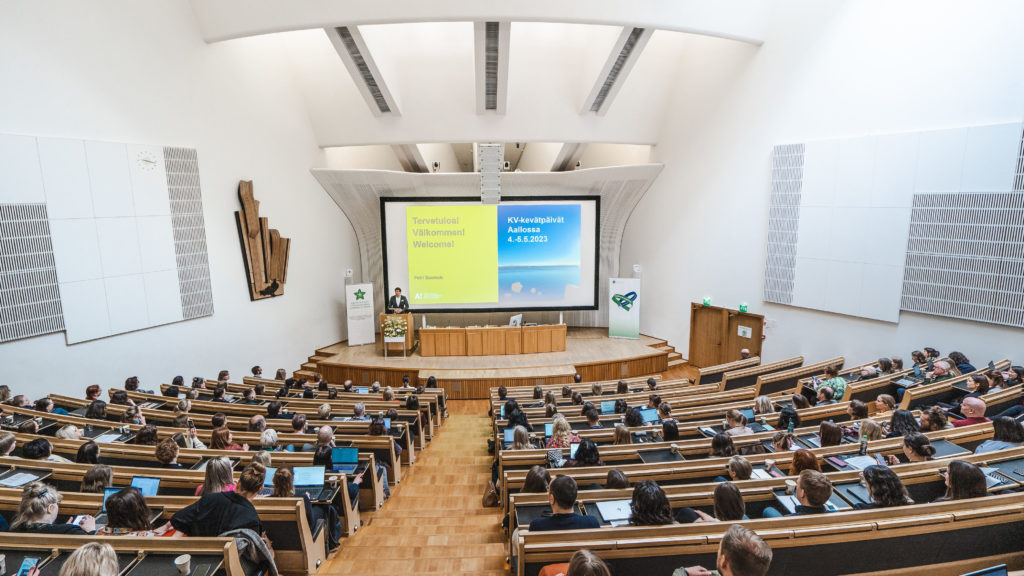The changing geopolitical context in GINTL regions (Africa, China, India)
The three GINTL regions – China, India and the African continent – all have a critical position in global geopolitics. Throughout the 2023 Spring Forum, collaboration with these regions was emphasised from a strategic perspective.
The Team Finland Knowledge (TFK) experts based in the GINTL regions shared their insights into the current situation:
Olli Suominen, Senior Specialist in Beijing, explained how China is gradually re-opening after the pandemic. Identifying feasible areas for collaboration, while being conscious of the risks related to academic collaboration with China is a timely challenge;
Mika Tirronen, TFK Senior Specialist based in New Delhi, described India as a rapidly growing superpower. The world’s biggest, young and skilled population has enabled fast technological development. As Finnish education gains popularity, Finland becomes better known in India, leading to an increase in the annual number of Indian students studying in Finland. Numbers are also increasing for those moving from India to Finland for work or in search of jobs. As India sets about implementing the latest policy reform, NEP 2020, educators and educational institutions in India show increasing interest in collaborating with and learning from Finland – a country which is widely known for its “successful education system.”
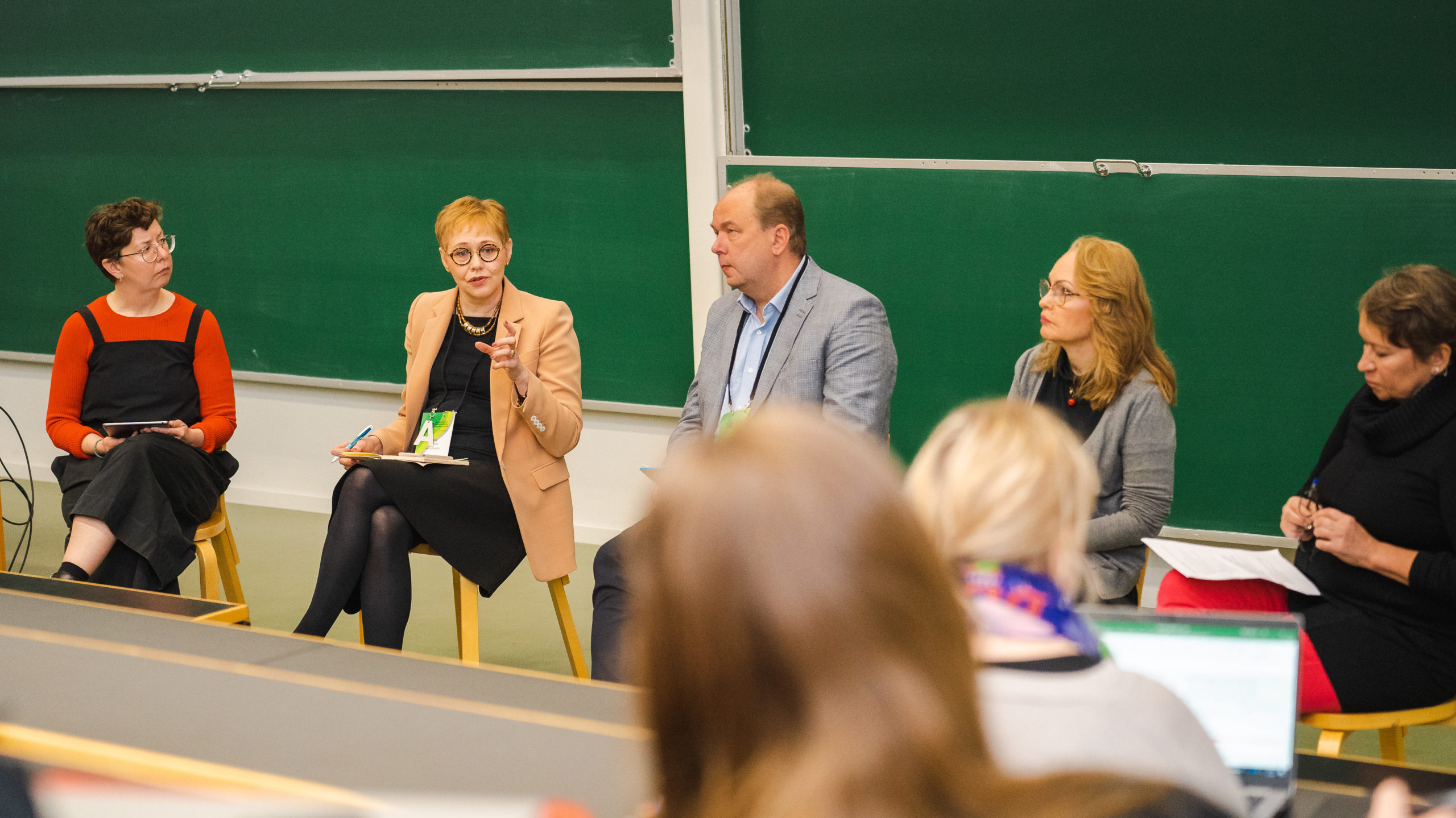
Africa, being a neighbouring continent to the EU, remains strategically important. Iina Soiri, TFK Senior Specialist for Southern Africa, reminded of the ethical consideration on international student recruitment. From which countries are students recruited and under which conditions? Do we aim to permanently attract talent or to encourage graduates to return to their home region and make a contribution there?
As is the case with many other fields, higher education collaboration, too, is becoming increasingly politicised. Science policies and science diplomacy now have an important role in international cooperation, rendering higher education institutions a part of the geopolitical dynamics. Staying informed on developments and implementing responsible actions in response to them are important in the advancement of shared development goals. We recommend all GINTL partners to subscribe to the TFK Newsletter for frequent updates.
Current internationalisation landscape in higher education
The Spring Forum provided a snapshot of the various approaches to internationalisation in higher education. Institutions work on internationalisation from different positions: from business models and attracting students and talent to mobility of students and staff; from project collaboration to long-term development of strategic partnerships.
The global networks funded by the Ministry of Education and Culture, including GINTL, have their unique position among these approaches. As the global networks work in between the international offices/units and the teaching and research staff in the faculties, we find it important to connect the institutional contexts for internationalisation to colleagues working with research collaborations, international degree programmes and other forms of international collaboration. For the coordination teams, the Spring Forum offered a good opportunity to understand the wider context of internationalisation in Finnish higher education institutions and helped to identify areas for further cross-institutional discussion and collaboration.
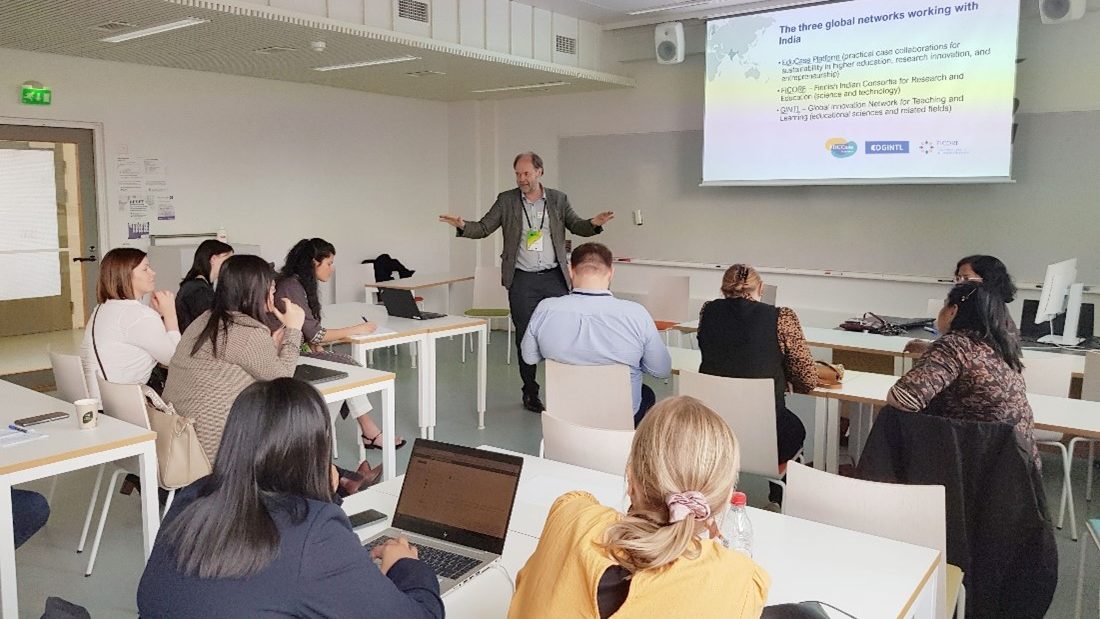
A topic that remains central in the Spring Forum discussions is how our institutions are preparing to welcome international students and colleagues to Finland. Units enabling short-term visits and working to attract and retain students, researchers, and other professionals shared their successes and challenges, with a focus on making international visitors’, students’, researchers’ and staff members’ experience in Finland inclusive and meaningful. The staff working with internationalisation is gradually becoming more international. This was also signaled in having English as the working language of many thematic sessions. However, work remains to be done to develop genuinely flexible, multilingual approaches to discuss and develop internationalisation. To do so, we need to find ways to expand understanding of the dimensions of internationalisation. Going beyond targets related to international mobilities and recruitment, how do we see internationalization from the perspective of students and staff who have chosen Finland as an international context? How do these perspectives connect to the views of those aiming to internationalize at home?
Focus on quality partnerships
The sessions focusing on partnership development were particularly interesting to GINTL. In the context of global partnerships, the discourse is shifting from capacity building to developing mutually beneficial partnerships. The ‘due diligence’ approach to partnership development is about identifying potential opportunities and risks early in the process to enhance responsible partnerships.
Choosing the right partners to work with remains a key question. Who are the ones initiating partnerships and what are the reasons to create them? For whom are our institutions good partners? How do the geopolitics change our priorities and possibilities to engage in partnerships? These questions can help us think beyond partnering with the highest-ranking institutions and consider, for example, more commitment to equity as well as the need for developing quality of teaching and research as alternative criteria for creating partnerships.
A key question to all GINTL institutions is: What kind of partners are we as individual institutions and as a network? The remaining time of the 2021–2024 GINTL funding is an opportunity for GINTL institutions to prove the power of collaboration between Finnish HEIs in creating sustainable, responsible partnerships.
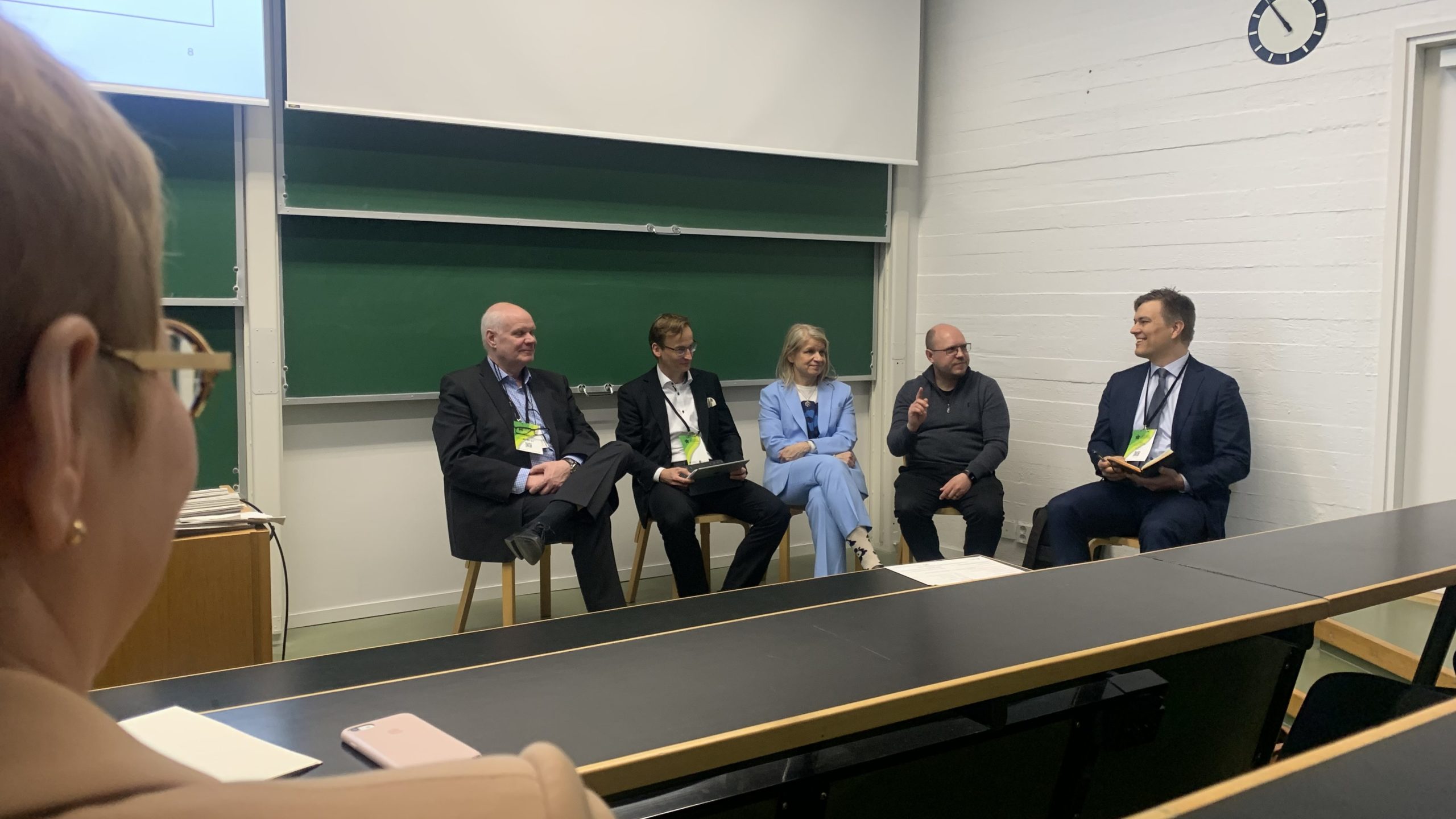
For those interested in reading more about responsible internationalisation we recommend a report by the Swedish Foundation for International Cooperation in Research and Higher Education: Responsible internationalisation: Guidelines for reflection on international academic collaboration.
GINTL takeaways from the Spring Forum
The role and future of the global pilots was discussed in a specific panel represented by the GINTL, Ministry of Education and Culture, TFK Senior Specialist for The North American Region / FARIA / TFK and Aalto University. The panel concluded that there is an increasing need for collaboration between Finnish institutions and their partners to make a meaningful impact. In the final panel discussion, Johanna Sumuvuori, State Secretary to the Minister for Foreign Affairs emphasised that counter action and strong partnerships are needed in a multi-polar world that has moved from collaboration to competition and rule-based order.
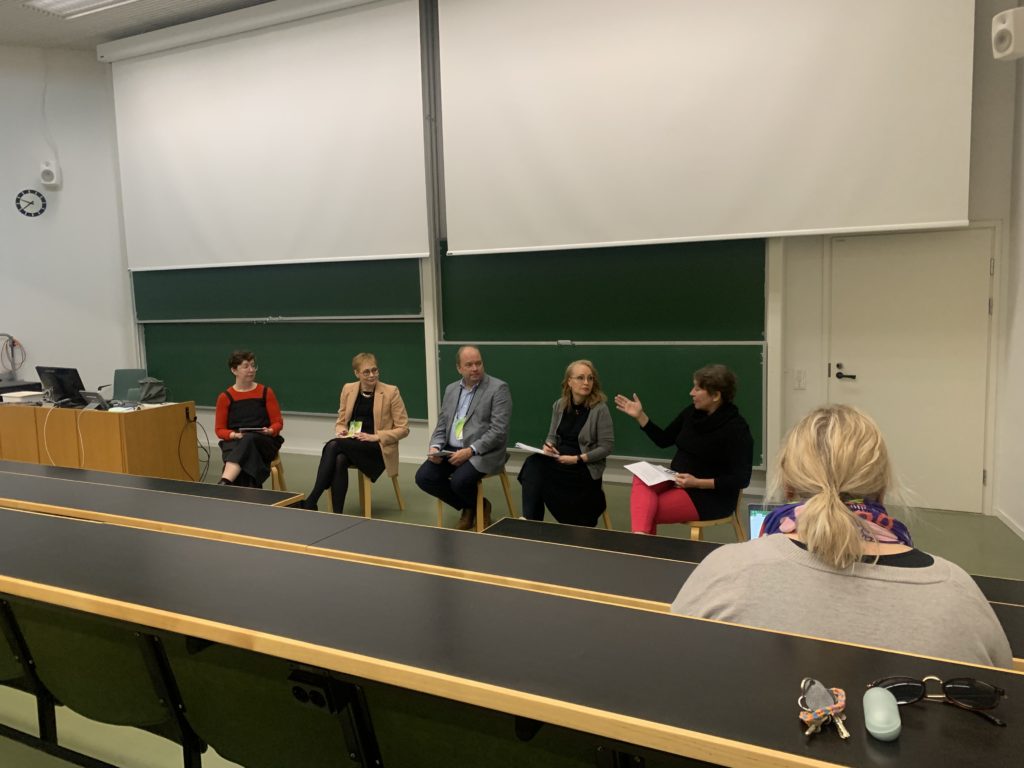
Educational sciences should have a stronger role in internationalisation. However, the field lags behind in student mobility and training professionals to work in internationalising contexts. The data we have collected also shows that educational research focusing on the GINTL regions remains limited. GINTL will work to advance the internationalisation efforts in the area of educational sciences through collaboration with international degree programmes, and by contributing to the national forums organised for students and researchers, including the annual SDG4 seminar and the FERA conference.
Research on global higher education partnerships is needed to understand the value of partnerships and to develop them further. The role of international higher education research as part of research in educational sciences can be strengthened by academic collaboration across institutions. It is important to GINTL to recognise our role as a research network in contributing to the internationalisation work.
In his final address, Ossi Naukkarinen, Vice President of Aalto University, reminded that internationalisation has always existed and it has always kept changing. It is nothing new but rather our way of being in the academia. We see a unique opportunity for GINTL in connecting the sometimes separate ‘internationalisation bubbles’ in the administration, research and teaching. The coordination teams are happy to serve this role with the support and guidance from our member institutions.
Author
Compiled by Hanna Posti-Ahokas based on notes and inputs from the GINTL coordination teams in University of Helsinki and University of Jyväskylä.
Materials of the Spring Forum are available on the EDUFI website.
Cover image: The opening of the 2023 Spring Forum (Photo: Aalto University / Atte Mäkinen)
